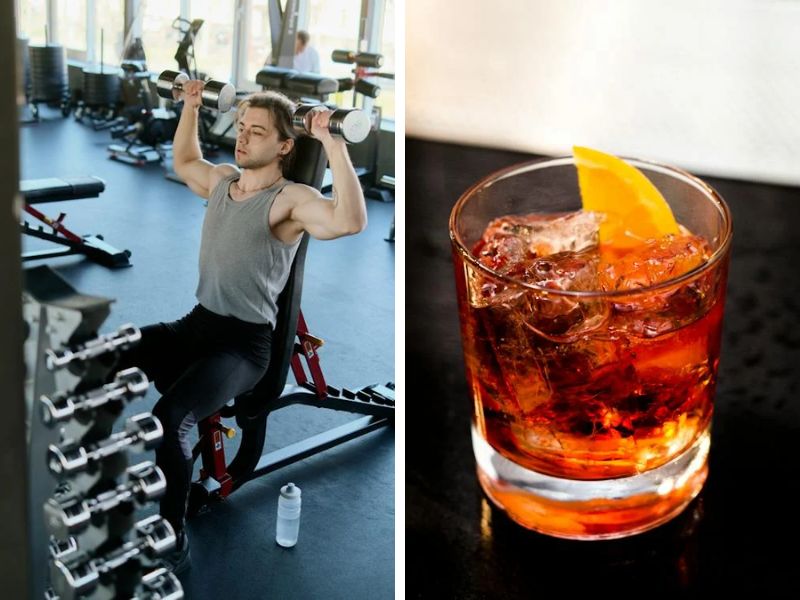In recent years, there has been a growing trend among fitness enthusiasts to cut back on their alcohol consumption. With a focus on achieving their fitness goals, more and more exercisers are recognizing the negative impact of drinking on their health and fitness routines.
Alcohol can impede muscle growth and recovery by reducing protein synthesis and increasing protein breakdown. It can also cause dehydration, affecting athletic performance and increasing the risk of injury. Additionally, alcohol can disrupt sleep, which is crucial for muscle recovery and overall health.

Image Credit: Pexels/Ivan Samkov & Pexels/Isabella Mendes
Many fitness enthusiasts are also cutting back on alcohol to reduce their calorie intake. Alcohol is high in calories and often consumed in conjunction with unhealthy foods. By reducing alcohol consumption, exercisers can better control their calorie intake and improve their nutrition.
Some fitness communities even embrace sobriety to enhance their workouts and achieve their goals. Sober gyms and fitness studios are popping up nationwide, offering a supportive community for individuals who want to prioritize their health and fitness without alcohol.

Image Credit: Pexels/Leon Ardho
The pandemic has also contributed to the shift towards sobriety and healthier living. It has increased interest in at-home workouts and healthier habits, including cutting back on alcohol. With more time spent at home, many people have had the opportunity to reevaluate their lifestyle choices and prioritize their health.
Overall, the trend towards cutting back on alcohol in pursuit of fitness goals is positive. By prioritizing their health and wellness, exercisers are improving their physical and mental well-being and achieving their fitness goals more efficiently. With the rise of sobriety communities and healthier living, it is clear that this trend is here to stay.